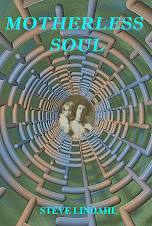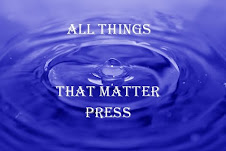I've been thinking about the reasons that War and Peace is impressing me so much while Resurrection left me flat. The main idea I've come up with is the different motivation Tolstoy must have had while writing. War and Peace is filled with astute and detailed observations of his characters that bring them to life, while the characters in Resurrection feel as if they have been manipulated into becoming evidence to justify Tolstoy's point of view concerning prison reform. In one case Tolstoy was an observer of humanity. In the other he was trying to change humanity.
General Kutuzov is a good example of the way Tolstoy used his observance of human characteristics to make his portrayal of this, real general into a full bodied character. Here's a paragraph that demonstrates this:
The Russians did not seek out the best position but, on the contrary, during the retreat passed many positions better than Borodino. They did not stop at any one of these positions because Kutuzov did not wish to occupy a position he had not himself chosen, because the popular demand for a battle had not yet expressed itself strongly enough, and because Miloradovich had not yet arrived with the militia, and for many other reasons. The fact is that other positions they had passed were stronger, and that the position at Borodino (the one where the battle was fought), far from being strong, was no more a position than any other spot one might find in the Russian Empire by sticking a pin into the map at hazard.
In this paragraph Tolstoy shows how Kutuzov thought of all aspects, including political strength, before making his decision. Tolstoy didn't pass judgment on this process he simply reported it. Aspects of it might have been true, but it is far more likely to be a scene created in the mind of an great writer of fiction.
Saturday, September 24, 2011
Saturday, September 17, 2011
My third post on Tolstoy's War and Peace
I'm continuing to make my way through War and Peace and the trip gets more interesting the further I get into it.
In my last blog entry about Tolstoy's novel I wrote about Prince Andrew Bolkonski and how interesting and tragic his relationship with his wife was. After her death, he went on to an engagement with Natasha Rostova, a much younger woman. This way of "moving on" seemed to lessen his revelation concerning the love for his wife and presented a weaker picture of Bolkonski, especially in his relationship with his father, who disapproved of his engagement.
Tolstoy was brilliant in the way he wove multiple plots into the novel. All the characters seem to know each other and to affect each other's plans, but they all have their own stories.
I'm now at the point of the story where Nicholas Rostov is spurred on by the adrenaline rush of a battle, captures a French officer, and earns the St. George's Cross. What is fascinating about this section is the internal struggles Rostov goes through with his own fears and the way he conquers them. From what I have read about Tolstoy I feel he was very different from Rostov, yet as a writer he was able to go into Rostov's head completely. I've never been in a war, yet I felt I understood what Rostov was feeling.
Tolstoy was born in 1828, seven years after the death of Napoleon. Yet Tolstoy has included Napoleon as one of the characters of War and Peace and has given the readers as complete a study of his emotions as he has with any of his other characters. This makes the novel a historical fiction while providing what is most likely one of the best pictures possible of how the French Emperor thought. Again, so much is happening in this book and it is all fascinating.
In my last blog entry about Tolstoy's novel I wrote about Prince Andrew Bolkonski and how interesting and tragic his relationship with his wife was. After her death, he went on to an engagement with Natasha Rostova, a much younger woman. This way of "moving on" seemed to lessen his revelation concerning the love for his wife and presented a weaker picture of Bolkonski, especially in his relationship with his father, who disapproved of his engagement.
Tolstoy was brilliant in the way he wove multiple plots into the novel. All the characters seem to know each other and to affect each other's plans, but they all have their own stories.
I'm now at the point of the story where Nicholas Rostov is spurred on by the adrenaline rush of a battle, captures a French officer, and earns the St. George's Cross. What is fascinating about this section is the internal struggles Rostov goes through with his own fears and the way he conquers them. From what I have read about Tolstoy I feel he was very different from Rostov, yet as a writer he was able to go into Rostov's head completely. I've never been in a war, yet I felt I understood what Rostov was feeling.
Tolstoy was born in 1828, seven years after the death of Napoleon. Yet Tolstoy has included Napoleon as one of the characters of War and Peace and has given the readers as complete a study of his emotions as he has with any of his other characters. This makes the novel a historical fiction while providing what is most likely one of the best pictures possible of how the French Emperor thought. Again, so much is happening in this book and it is all fascinating.
Sunday, September 11, 2011
Bookmarks Festival - Winston Salem - 2011

This year's Bookmarks Festival had great weather and a huge turnout. I was at the Barnhill's Bookstore most of the day. I met a number of interesting people and sold some books. The only reading I had time to attend was a spontaneous poetry reading under a tree by the Press53 booth. I loved watching the authors reading from their books. It felt about as sincere as any reading I've ever attended. I wish I was able to attend some of the official readings. I understand they also went well. It was fun watching the lines of people following the writers to the book signing table. Overall, It was a great day.


Saturday, September 3, 2011
My second post on War and Peace
I'm a little more than a third of the way through War and Peace now and absolutely fascinated by the way the complicated plot weaves about among the many characters. It helps that I'm reading on my Kindle, because if a character comes up who seems to be someone I should know I can search the book to find earlier appearances. I've also discovered a Wikipedia entry for “List of War and Peace characters.” That has helped me keep track of all the counts, countesses, princes, and princesses.
[SPOILER ALERT FROM THIS POINT ON]
At this point in the book Prince Andrew Bolkonski is the character I find the most interesting. I love the way he was so concerned about making his mark in the service, due primarily to his father's successful career, that he did not listen to the wishes of his wife and even became irritated with her. Then when he is wounded and is lying on a battlefield, on the Pratzen Heights, he looks up at the lofty sky, thinking he is going to die, and has a spiritual awakening. This road to Damascus event changes Prince Andrew's life. Among the other changes he experiences is a new found respect and love for his wife. The French army finds him and because Napoleon instructs them to take care of him, Bolkonski is nursed back to health. He returns to his wife on the day she is giving birth to their son. He has the opportunity to call her “My darling,” something he has never called her before. After that moment she dies. When Andrew looks at his wife's dead body he sees on her face an expression that says, “I love you all, and have done no harm to anyone; and what have you done to me?”
When describing these moments they sound maudlin and too coincidental. But Tolstoy manages to keep that feeling out of his writing by dwelling on the thoughts and emotions of Prince Andrew. It is extremely powerful.
[SPOILER ALERT FROM THIS POINT ON]
At this point in the book Prince Andrew Bolkonski is the character I find the most interesting. I love the way he was so concerned about making his mark in the service, due primarily to his father's successful career, that he did not listen to the wishes of his wife and even became irritated with her. Then when he is wounded and is lying on a battlefield, on the Pratzen Heights, he looks up at the lofty sky, thinking he is going to die, and has a spiritual awakening. This road to Damascus event changes Prince Andrew's life. Among the other changes he experiences is a new found respect and love for his wife. The French army finds him and because Napoleon instructs them to take care of him, Bolkonski is nursed back to health. He returns to his wife on the day she is giving birth to their son. He has the opportunity to call her “My darling,” something he has never called her before. After that moment she dies. When Andrew looks at his wife's dead body he sees on her face an expression that says, “I love you all, and have done no harm to anyone; and what have you done to me?”
When describing these moments they sound maudlin and too coincidental. But Tolstoy manages to keep that feeling out of his writing by dwelling on the thoughts and emotions of Prince Andrew. It is extremely powerful.
Subscribe to:
Posts (Atom)






